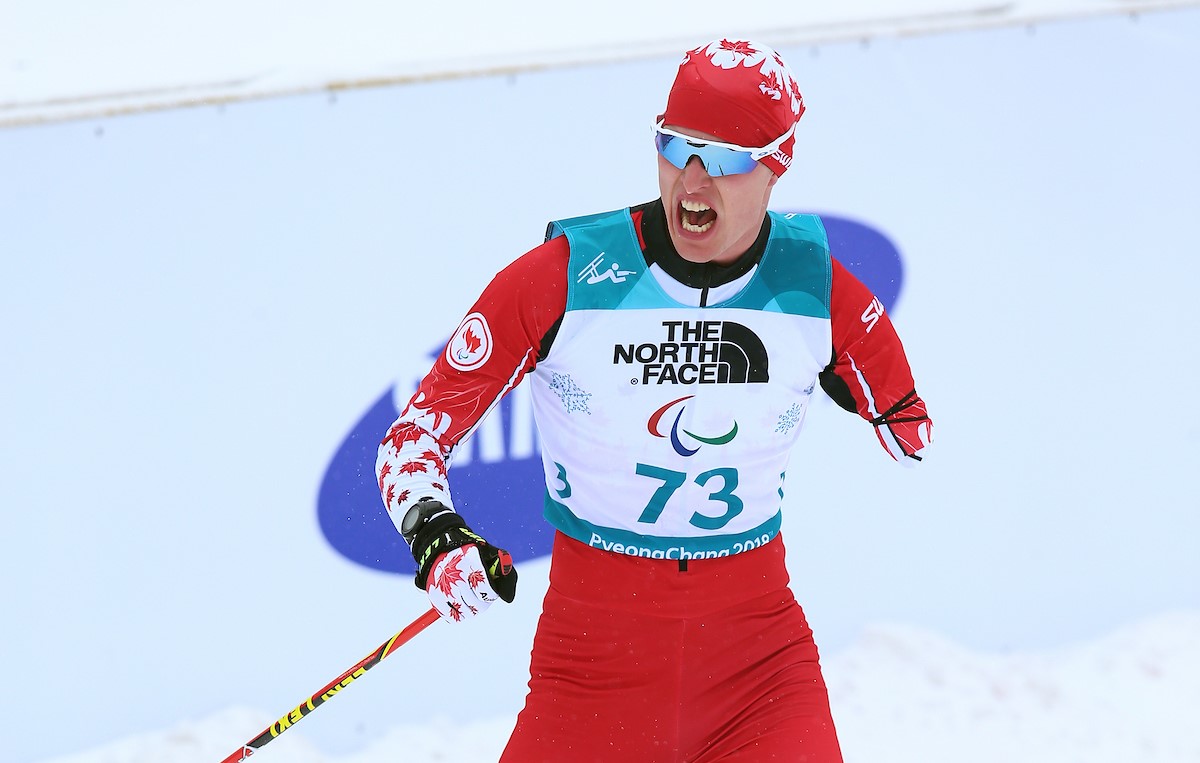Despite uncertainty, Canada’s Para skiers hit the trails and slopes
McKeever committed to 2022, Marcoux recovering from injury

CANMORE, Alta – Mark Arendz, who won a Canadian record six medals at the PyeongChang 2018 Paralympic Winter Games, was pleased to be back on snow for the first time in six months earlier this week as Canada’s nordic skiers tested the trails at the Canmore Nordic Centre.
“Strange enough this year feels actually quite natural to be on it quickly,” Arendz told CTV News Calgary. Arendz was seen practicing on the trails and the shooting range as he also competes in biathlon.
“The first 10 minutes are a little weird but then you get your legs again and then it just felt a lot better.”
Brian McKeever, Canada’s most successful winter Paralympian with 17 medals, including 13 gold, admits training gets harder every year. Still, the 41-year-old has his sights set on Beijing.
“[Beijing] gives me mentally as well a place to close it out and then gives me some time to think about what else to do,” the five-time Paralympian told Rocky Mountain Outlook.
The Canmore Nordic Centre insulates its snow over the summer months which can allow the athletes to shelve the roller skis earlier than usual.
McKeever and Arendz were named to the 2020-21 national team earlier this year along with Collin Cameron, Natalie Wilkie, Emily Young and Brittany Hudak, all Paralympic Games medallists.
Canada’s Para alpine skiers were over in Europe for three weeks of training recently but are now back home isolating and hoping they can get on Canadian mountains soon.
Mollie Jepsen, a quadruple medallist in her Games debut in 2018, says she’s taken the extra time to manage her health. She’s made remarkable recoveries from injuries in the past, but in September 2018 she was diagnosed with Crohn’s Disease.
The 21-year-old told CBC Sports on the weekend that she has harnessed the disease.
“I feel super lucky I’ve had this time to get on top of my health,” she said. “In my mind it’s not really a problem anymore. I have no concerns moving forward.”
In last winter’s shortened season, Mac Marcoux and his guide Tristan Rodgers were crowned the giant slalom World Cup champions in their first full season together. This past summer Marcoux underwent knee surgery and hopes to be able to return to the slopes in November.
“We’re aiming right now for the world championships in February,” said Marcoux, already a five-time Paralympic Games medallist over two Games at age 23. “It’s kind of business as usual for the fall, then we’ll try to get back on snow as soon as we can and get as many days in as we can before the race season.”
Rodgers went to the recent training camp overseas without his injured partner and took the opportunity to refine his skills.
“Last year’s races exposed some weaknesses in my skiing,” he said. “So I took those three weeks to work on the technical side and work on that consistency.”
With the Beijing Paralympic Games now less than 500 days away, Canada’s winter athletes appear determined to maximize their training and competitive opportunities in this unusual season.
"*" indicates required fields
"*" indicates required fields